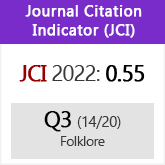El tiempo, la ciudad y la historia en la Grecia clásica
DOI:
https://doi.org/10.3989/rdtp.2004.v59.i1.144Keywords:
Cyclical Time, Teleological Time, Secular and Linear Time, The city-state, Herodotus, Thucydides, PlatoAbstract
It is simplistic to oppose a circular idea of time among the ancient Greeks to the linear time of the Judeo-Christian tradition. In the Judeo-Christian tradition, linear time appears in combination with a history understood as oriented toward a predetermined, revealed end. Moreover, there also appears in this tradition a concept of repetitive time. In contrast, in classical Greece the concept of circular time coexisted with that of a secular, linear historical time, of which Herodotus and Thucydides are the leading representatives. It is true, though, that this concept of time was not the prevailing one in classical Antiquity; it only dominated the literature in the periods of rapid and deep political transformations, such as those that affected Athens in the 5th century B. C. Nonetheless, the teleological concept of time is absent in the Greek tradition. The historical narrative, as we understand it today, would only emerge in the 19th century, in connection with the mature development of capitalism. Classicism can no longer be viewed as a monolithic phenomenon that produced models for the rest of humankind in its long historical unfolding.
Downloads
Download data is not yet available.
Downloads
Published
2004-06-30
How to Cite
Plácido Suárez, D. (2004). El tiempo, la ciudad y la historia en la Grecia clásica. Disparidades. Revista De Antropología, 59(1), 157–172. https://doi.org/10.3989/rdtp.2004.v59.i1.144
Issue
Section
Articles
License
Copyright (c) 2004 Consejo Superior de Investigaciones Científicas (CSIC)

This work is licensed under a Creative Commons Attribution 4.0 International License.
© CSIC. Manuscripts published in both the printed and online versions of this Journal are the property of Consejo Superior de Investigaciones Científicas, and quoting this source is a requirement for any partial or full reproduction.All contents of this electronic edition, except where otherwise noted, are distributed under a “Creative Commons Attribution 4.0 International” (CC BY 4.0) License. You may read here the basic information and the legal text of the license. The indication of the CC BY 4.0 License must be expressly stated in this way when necessary.
Self-archiving in repositories, personal webpages or similar, of any version other than the published by the Editor, is not allowed.















